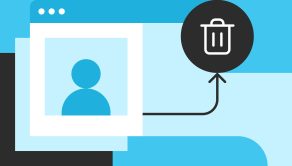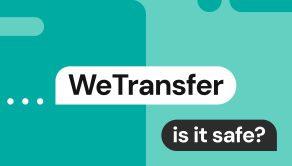National Do Not Call List not working? Learn what to do if you are on the Do Not Call List and still get calls
 Erin Kapczynski
SVP, B2B Marketing at Onerep
Erin Kapczynski
SVP, B2B Marketing at Onerep

With millions of Do Not Call complaints filed every year to the Federal Trade Commission (FTC), it’s clear that people don’t want to be disturbed by sales calls and scammers. As we’ll explore in this article, though registering your phone number in the Do Not Call Registry is a great way to opt out of sales calls, it won’t save you from scam calls.
Let’s look into the limits of the Do Not Call Registry and see what other steps you can take to stay safe.
What is the National Do Not Call List?
The National Do Not Call Registry (or the Do Not Call List) was established in 2003 to help consumers opt out of intrusive sales calls. Overseen by the FTC, the Do Not Call List is completely free to register phone numbers to, and it even includes a mechanism that lets consumers report scam calls.
Beyond cutting down on the number of sales calls that consumers get, joining the Do Not Call List can also help you differentiate unwanted sales calls from dangerous scam calls – after 31 days on the list, no reputable sales agency should contact you. So, you should be wary of any new calls that sound like scams.
Before diving into a quick history of the Do Not Call List, here are a few must-know data points according to the FTC 2019 Data Book:
- Since 2015 there have been over 200 million registrations each year on the Do Not Call Registry.
- There were over 5 million Do Not Call complaints filed in 2019, about a fourth of which concerned robocall scams.
- By far, the most common complaint concerned calls from imposters, which are people or robocallers pretending to be from government agencies or businesses. The other most common calls concerned reducing debt or calls about medical services and prescriptions.
A quick history of the Do Not Call Registry
In 1991, consumer outrage concerning intrusive calls to their homes from telemarketers urged Congress to amend the Communications Act of 1934. In response, Congress added the Telephone Consumer Protection Act (TCPA).
In the TCPA, the Federal Communications Commission (FCC) decided against a national Do Not Call list. Instead, they mandated that telephone solicitors keep their own lists of customer preferences. The FTC created a similar provision, putting the onus of creating and maintaining a Do Not Call list on companies.
These solutions didn’t do much to stop the problem, so shortly after their implementation, states began creating their own Do Not Call Lists. By the end of 2002, over half of all states had created their own lists. This was enough interest in the issue for the FCC to establish the National Do Not Call Registry in 2003, an action that let the FTC create regulations and establish fees to enforce it.
Ever since the implementation of the National Do Not Call Registry, most states have decided to drop the expense of maintaining their own lists and accept the National Do Not Call List as their state’s registry. A few states still maintain their own lists.
These states include, as of the latest data we could find in 2017, Colorado, Florida, Indiana, Louisiana, Massachusetts, Mississippi, Missouri, Oklahoma, Pennsylvania, Tennessee, Texas, and Wyoming. However, even consumers located in these states can join the national registry.
When does the National Do Not Call Registry help?
As we mentioned earlier, the federal Do Not Call List is only supposed to stop intrusive sales calls. It won’t stop all personal or commercial entities from contacting you, as we’ll discuss below, and it certainly isn’t intended to be a security barrier against scam calls. After all, the only reason it works is because telemarketers are obligated to update their phone number logs every 31 days to ensure that they aren’t contacting anyone on the list. Scammers don’t care too much about this registry, so it doesn’t stop them.
If you’re registered, you should stop receiving sales calls within 31 days. If calls persist, then you’re probably dealing with scammers – or you’re being called by entities that don’t need to adhere to the Do Not Call Registry. We’ll cover that next.
When does the Do Not Call List fail?
So, the National Do Not Call List stops telemarketers from calling you. But what happens if you’re still getting calls? There are a few answers here. First off, understand that the Do Not Call Registry doesn’t apply to political, charitable, debt collection, surveys, or purely informational calls.
There are a few circumstances in which being listed on the Do Not Call Registry won’t work:
- The caller is operating illegally: One of the most obvious examples is a telemarketing agency or scammer that just doesn’t care about complying with the FTC Do Not Call List. This leaves them vulnerable to potentially large fines (up to $10,000) and other legal actions. If a group is already operating with no concern for the law, you should be especially careful not to give them any information. Report the number to the FTC, and then block it. Many scammers make masked calls internationally, so it’s harder to detect where they originate. Always make sure to report and block them.
- The call concerns debt collection: Debt collectors are allowed to contact you concerning debts, even if you’re on the Do Not Call List. However, upon request, they are obligated to stop contacting you unless they’re taking legal action. This is enforced by the FTC as part of the FDCPA (Fair Debt Collection Practices Act), which legally requires all debt collectors to avoid abusive, unfair, or deceptive practices during debt collection. The FDCPA only applies to debt related to credit cards, auto loans, medical bills, mortgages, and other household debts. Business debts are not included. You can find more information on this issue on the FTCP’s debt collection FAQ.
- The call is from a business you’re associated with: If you’re already doing business with a company or have agreed to receive information from them, they can contact you without checking the Do Not Call List for your number. Upon request, you can have them stop contacting you.
- The call concerns a political, charitable, or surveyor organization: Robocalls and live-person cold calls are permissible if they come from political or charitable organizations – even if you’re listed on the Do Not Call List. Surveyors are also allowed to reach out. Again, these callers must stop contacting you if you ask.
What to do if you are on the Do Not Call List and still get calls
The National Do Not Call Registry is ineffective against the most dangerous types of calls: those coming from people who already operate outside of the law. So, is there anything you can do now to make sure you don’t end up on a scammer’s call list later? There is.
We advise to take these steps:
- Remove your information from people-search sites: One of the primary resources for scammers is people-search sites. These sites collect public records to create profiles under your name. They can gather a shocking amount of personal information, including contact information, home addresses, and in some cases, Social Security numbers. Scammers can buy lists of contact information from these sites and use personal details to create sophisticated scams. It can be time-consuming to remove yourself from hundreds of people-search sites by manually opting out of each one. That’s why we created Onerep, which automatically removes you from 232 people-search sites – and keeps you off of them.
- Block spam calls: If you joined the National Do Not Call List over 31 days ago and you’re still getting calls, a scam is likely. Block calls that seem suspicious. If you aren’t sure which calls are real or not, a lot of phone companies have call labeling and blocking services available. These tools help users identify and avoid spam and scam calls in real-time by marking them. There are also a lot of third-party spam-blocking apps available on iOS and Android. You can find a thorough guide to blocking spam calls on landlines, wireless home phones, cellphones, and more on the FCC website.
- Report spam calls to the FTC and FCC: If you happen to pick up the phone and it’s obviously a scam, you should report it to the FTC and FCC immediately using the respective links: FTC Report Page, FCC File-a-Complaint page.
- Don’t answer unknown calls: There are a lot of tricks scammers can use to get you to pick up your phone. As a rule of thumb, don’t pick up calls that you don’t recognize. If you get a voicemail from a trusted contact, just add that number to your contact list and continue to be wary of unrecognized numbers. Also, be aware that just because you see a local area code doesn’t mean that the caller is nearby. It isn’t difficult for international scammers to mask their numbers.
- Don’t interact with unknown calls: If you do pick up a call and are greeted by a recorded message, it’s very likely a scam. Robocalls are only allowed for political or charitable organizations. Do not press any buttons and do not answer any questions. Just hang up. Even if the message says, “Press 1 to Join Our Do Not Call List,” don’t do it. This is often how scammers identify potential victims.
Let’s wrap it up…
The National Do Not Call List is a great resource if your phone keeps ringing from unwanted sales calls – but it won’t protect you from phone scams. If you’re on the Do Not Call List and you still get a suspicious call, it’s most likely a scammer who found your phone number on the internet. To get off of scammers’ radars, we highly recommend removing your personal information from people-search sites. With Onerep, all of this is done automatically – so you can feel safer and focus on what matters.
FAQ
How to check if a number is on the Do Not Call List?
You can check if your number is on the National Do Not Call Registry by visiting the FTC’s Do Not Call Registry verification page. This requires filling out a digital form with up to three phone numbers, entering your email, and then waiting for a verification response to arrive in your inbox.
How do I get on the Do Not Call List?
Registering your phone number with the National Do Not Call Registry is easy. You just need to visit the donotcall.gov registration page and complete the process for free. Alternatively, you could join by calling 1-888-382-1222.
How long does a number stay on the Do Not Call List?
Once you’ve added your number to the National Do Not Call Registry, it won’t expire. If you’re still getting unwanted calls after 31 days on the list, you can report them here. If your number is disconnected and then reconnected or if your area code splits, you may need to register the number again.
Is there a Do Not Call list for cell phones?
Yes, there’s a federal Do Not Call List for cell phones. You can add your number for free by visiting the donotcall.gov registration page. Once added, you’ll need to wait 31 days, and then most unwanted telemarketer calls should end.
How many numbers can I register at a time?
You can register up to three numbers at a time on the federal Do Not Call List. If you need to add more, you can simply begin the registration again.
Can I add a business number to the Do Not Call Registry?
The National Do Not Call Registry applies only to consumers. It isn’t intended to include business phone numbers and fax numbers. If you’re a consumer, you can visit the donotcall.gov registration page.
What is the number for the Do Not Call List?
If you want to register your number on the National Do Not Call List via phone , call 1-888-382-1222.
Do I have to give the FTC my email?
Yes. To register your phone, you need to give the federal Do Not Call List your email. The FTC doesn’t specify on their website or in their privacy policy why this is necessary. However, it’s a requirement, and they do say that they store it securely and separately from your phone number. For more information, you can see the FTC privacy policy here.
Can I take my number off the Do Not Call List?
Yes. There are two ways that your number will be removed from the list: if your number is disconnected and then reconnected or if you ask the FTC to remove it. If you want to remove your registered number from the list, contact the FTC.
What happens if you call someone on the Do Not Call List?
The Do Not Call Registry doesn’t apply to calls from one person to another. However, if you’re a telemarketer, then you cannot call anyone listed on the Do Not Call Registry. The FTC gives telemarketers a 31-day grace period to update their phone number logs. However, if you see that a number is on the list before then, or if you choose not to update your log and call after this period, you’re committing a violation. The FTC can take action, such as giving you a fine of up to $10,000.
What is the fine for calling someone on the Do Not Call List?
If you’re a telemarketer and you call a number that was added to the Do Not Call Registry list over 31 days ago, you could be fined up to $10,000.
Who manages the National Do Not Call Registry?
The Federal Trade Commission manages the Do Not Call Registry.
How does the National Do Not Call Registry work?
The Do Not Call Registry lets consumers opt out of telemarketer calls and takes action against anyone who continues to call registered numbers. Through fines and other legal action, the Do Not Call Registry, offered by the Federal Trade Commission, lets you avoid unsolicited sales calls.
Why does the Do Not Call List not work anymore?
Sometimes people continue getting unwanted calls after joining the federal Do Not Call List. So, does the Do Not Call List work? Yes, it does. If you’re still having trouble, your number may have to be registered once more, or the telemarketers (or scammers) that are contacting you may be violating the terms. You can report them and then check on your phone number registration.
 Erin Kapczynski
SVP, B2B Marketing at Onerep
Erin Kapczynski
SVP, B2B Marketing at Onerep



